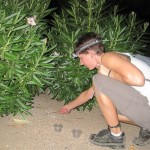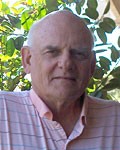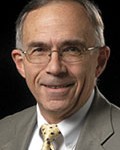
The Ecological Society of America’s SEEDS initiative, which aims to increase diversity in the field of ecology, is recruiting undergraduate students from underrepresented groups for the SPUR fellowship program. This program places students at ecological research sites across the United States. Several LTER sites are part of the SPUR fellowship program this year: Central Arizona-Phoenix (CAP) LTER, Harvard Forest LTER, Baltimore Ecosystem Study LTER, Cedar Creek LTER, and Kellogg Biological Station LTER. An additional site is the Llado River Field Station in Texas.
Students accepted as SPUR fellows will engage in a research project at one of these research sites under the mentorship of a faculty member, senior graduate student, or post-doctoral fellow. SPUR fellows will receive funding for travel and housing as well as a subsistence stipend.
To view the application requirements and apply, interested undergraduate students should visit the SPUR fellowship page on the SEEDS website. Applications are due January 15, 2016.



